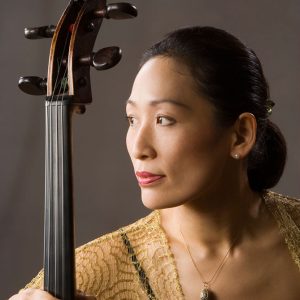
Seeing a Bigger Picture
Yeesun Kim
As a young cellist, I gratefully accepted my teachers’ generous offers of bowings, fingerings and phrasing suggestions to many pieces I studied. These suggestions were well tested in numerous performances, were given thoughtful evaluation that took into account the personal convictions of many great musicians. At that time, I was not particularly in the habit of questioning and reasoning for myself. In a sense, other than what I HAD to contribute, I trusted that all this work would and should settle into a successful interpretation.
Since becoming the cellist of a professional string quartet (the Borromeo String Quartet), my attitude HAD to change completely. Now, it was not possible to participate in making music without evaluating ALL that was in the score. The pieces in the repertoire of the string quartet tend to count on a complex, interdependent and intricate interweaving of parts. It would be very difficult to navigate this texture without a very high level of understanding of all the parts. This is the beautifully attractive thing about string quartet music, but can also be a source of frustration. As a matter of course, score studying became a big part of my preparation in and out of rehearsals. I tried to write important information into my part but I could not escape the feeling that I still missed many things that were in the scores. Invariably, I would resort to what I THOUGHT I should be hearing and depended on this talent!
Fast forward few years….. A computer device called a FooTime surfaced in the market. It is a computer attachment device for turning pages by using a foot pedal. Finally here was a solution to score reading that was as basic as practicing scales. One can scan in ones’ own favorite editions or download scores from numerous internet sites. No more educated guesses about how things fit together: rhythmically (most obvious), dynamically (not always obvious) and harmonically (least obvious). The rehearsal process is a lot more enjoyable as we can discuss very specific details from a much grander perspective. I also feel that I can be more free and more flexible responding to all the layers of the score. Especially for learning contemporary scores, the FooTime has proven itself to be an invaluable asset, making rehearsals much more efficient and more importantly, creating confidence and calm with unfamiliar music.
Conductors and pianists have never been without full scores and yet, other instrumentalists have been in this rather compromising situation for a long time. And now it really is not necessary to be trapped in this situation.
I hope you will give it a try as I cannot stress enough the advantages of this new system!
See: www.bilila.com
Subjects: Artistic Vision
